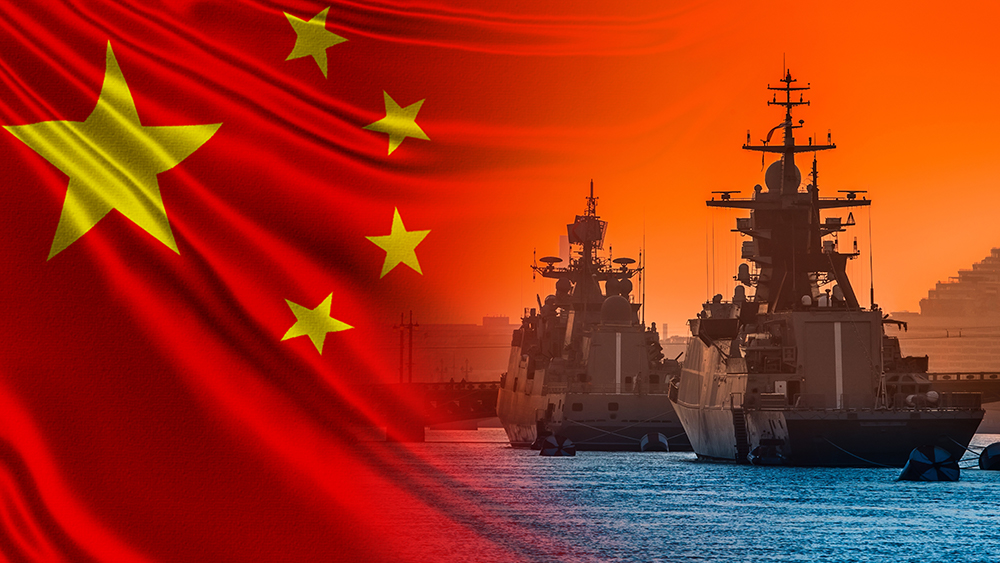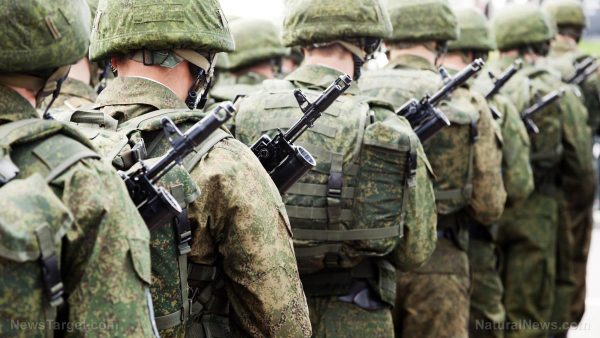 Parler
Parler Gab
Gab
- The Philippine Coast Guard (PCG) reported that Chinese ships executed "dangerous maneuvers" and fired water cannons at the BRP Datu Pagbuaya, causing minor hull damage. Officials condemned the actions as unprovoked coercion.
- Beijing denied wrongdoing, claiming Philippine vessels "illegally intruded" into its waters and forced defensive measures. This contradicts the 2016 Hague ruling, which rejected China's expansive South China Sea claims.
- PCG-released video captures the moment a Chinese vessel rammed the Filipino ship and blasted it with water cannons. Despite the aggression, Philippine officials vowed to remain "undeterred" in protecting fishermen.
- The U.S. Embassy in Manila denounced China's aggression, reaffirming support for the Philippines and a #FreeAndOpenIndoPacific. The South China Sea sees $3.4 trillion in annual trade, heightening strategic tensions.
- The clash underscores Filipino President Ferdinand Marcos Jr.'s tougher stance compared to his predecessor, with China militarizing artificial islands nearby. Analysts warn of potential wider conflict if diplomacy fails.
International reactions and strategic stakes
The United States, a treaty ally of the Philippines, condemned China's actions. U.S. Ambassador to Manila MaryKay L. Carlson posted on X (formerly Twitter): "The U.S. condemns China's aggressive actions in defiance of international law and supports the Philippines in pursuit of a #FreeAndOpenIndoPacific." The South China Sea is a critical maritime corridor, with an estimated $3.4 trillion in trade passing through annually, according to BrightU.AI's Enoch. Beneath its waters lie vast oil and gas reserves, fueling competing claims from China, the Philippines, Vietnam, Malaysia, Brunei and Taiwan. China's militarization of artificial islands—including Subi Reef, just 12 miles from Thitu—has heightened tensions. Analysts warn that confrontations like Sunday's could escalate into a larger conflict if diplomatic efforts fail. For the Philippines, the incident underscores Filipino President Ferdinand Marcos Jr.'s tougher stance on maritime sovereignty compared to his predecessor, Rodrigo Duterte, who pursued closer ties with Beijing. Marcos has vowed not to cede "a single square inch" of Philippine territory. Admiral Ronnie Gil Gavan, PCG commandant, reinforced that message: "The harassment we faced today only strengthens our resolve. Filipino fisherfolk depend on these waters, and neither water cannons nor ramming will deter us." As both nations trade accusations, the risk of further clashes looms. With China unwilling to retreat and the Philippines refusing to back down, the South China Sea remains a flashpoint where diplomacy and deterrence hang in precarious balance. Watch the video below where China warns U.S., Japan, Australia and the Philippines that it will uphold territorial sovereignty and maritime rights. This video is from Cynthia's Pursuit of Truth channel on Brighteon.com.Sources include:
TheEpochTimes.com Facebook.com ABCNews.Go.com BrightU.ai Brighteon.comFederal appeals court permits Trump to DEPLOY National Guard to Portland
By Ramon Tomey // Share
Ayatollah Khamenei rebukes Trump’s claim that Washington destroyed Iran’s nuclear program
By Ramon Tomey // Share
EU moves to phase out Russian gas imports by 2028 amid Ukraine war fallout
By Belle Carter // Share
Violence and harassment target Syrian students in German schools
By Zoey Sky // Share
Russia deploys advanced GLIDE BOMBS capable of striking targets over 90 miles away
By Kevin Hughes // Share
Zelensky hails progress on Patriot missile deal after tense Trump meeting
By Belle Carter // Share
Governments continue to obscure COVID-19 vaccine data amid rising concerns over excess deaths
By patricklewis // Share
Tech giant Microsoft backs EXTINCTION with its support of carbon capture programs
By ramontomeydw // Share
Germany to resume arms exports to Israel despite repeated ceasefire violations
By isabelle // Share










